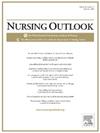利用人工智能检测电子健康记录中的污名化语言,以促进健康公平
IF 3.7
2区 医学
Q1 NURSING
引用次数: 0
摘要
在电子健康记录(EHRs)中使用污名化语言是一个值得关注的问题,因为它会影响患者与提供者的关系,加剧医疗保健差异,影响临床决策和有效沟通,从而影响患者的治疗结果。目的识别电子病历中的污名化语言及其与患者预后的关系。方法对某学术医疗中心500例医院获得性疾病患者的75,654份临床记录进行回顾性分析。利用机器学习技术检测电子病历中的污名化语言。该模型在识别污名化语言方面具有较高的准确性(F1得分:0.95),且污名化语言与停留时间有显著的相关性。该研究还显示,老年患者和那些有政府保险的患者更有可能在病历中使用侮辱性语言。结论使用人工智能对语言建模有助于识别护理模式和因污名化语言而面临风险的患者。本文章由计算机程序翻译,如有差异,请以英文原文为准。
Leveraging artificial intelligence to detect stigmatizing language in electronic health records to advance health equity
Background
The use of stigmatizing language within electronic health records (EHRs) is a significant concern, as it can impact patient-provider relationships, exacerbate healthcare disparities, influence clinical decision-making, and effective communication, which in turn affects patient outcomes.
Purpose
To identify stigmatizing language in EHRs and its associations with patient outcomes.
Methods
A retrospective analysis was conducted on 75,654 clinical notes from 500 patients with hospital-acquired conditions at an academic medical center. Machine learning techniques were utilized to detect stigmatizing language within the EHRs.
Discussion
The model demonstrated high accuracy in identifying stigmatizing language (F1 score: 0.95), and stigmatizing language had a significant association with the length of stay. The study also revealed that older patients and those with government insurance are more likely to have stigmatizing language in their notes.
Conclusion
Using AI to model language is useful for identifying care patterns and patients at risk due to stigmatizing language.
求助全文
通过发布文献求助,成功后即可免费获取论文全文。
去求助
来源期刊

Nursing Outlook
医学-护理
CiteScore
6.20
自引率
7.00%
发文量
109
审稿时长
25 days
期刊介绍:
Nursing Outlook, a bimonthly journal, provides innovative ideas for nursing leaders through peer-reviewed articles and timely reports. Each issue examines current issues and trends in nursing practice, education, and research, offering progressive solutions to the challenges facing the profession. Nursing Outlook is the official journal of the American Academy of Nursing and the Council for the Advancement of Nursing Science and supports their mission to serve the public and the nursing profession by advancing health policy and practice through the generation, synthesis, and dissemination of nursing knowledge. The journal is included in MEDLINE, CINAHL and the Journal Citation Reports published by Clarivate Analytics.
 求助内容:
求助内容: 应助结果提醒方式:
应助结果提醒方式:


